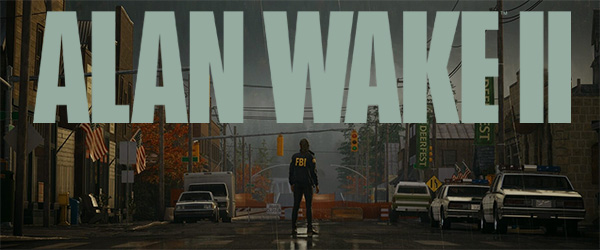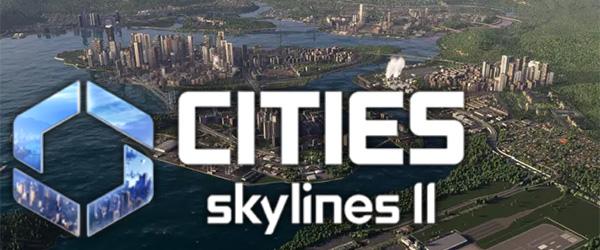We've been hearing all year that the "analytics" say that going for it on 4th and short situations results in (on average) more points and more wins, compared to punting or kicking a field goal. The fad for the past few years has been for teams to more frequently attempt to convert 4th and short situations, even when they are not in "comeback mode". More and more teams are refusing to punt the ball from inside the opponent's 50 yard line, or to kick chip shot field goals from within the opponent's 5. So far, this has been working out for teams more often than it has back-fired.
I've been a vocal opponent of these overly-aggressive play calls throughout the entire season, and have been insisting that these decisions are going to start to bite teams in the ass. That finally happened in the NFC Championship game, when the Detroit Lions found out the hard way that maybe they should have just taken the points.
The Lions refused to kick field goals on 2 separate occasions in the 2nd half. On both occasions, they failed to convert the 4th down. They left 6 points on the board, and they ended up losing the game (and their hopes of going to the SuperBowl) by 3 points.
In the 3rd quarter, after the Lions left the first 3 points on the board, I told the people watching the game with me that I thought this was the wrong move. The 49ers had scored a field goal with their first possession of the 2nd half to reduce the Lions' halftime lead from 17 to 14. Had the Lions simply kicked the field goal (and made it), they would have kept parity with the 49ers and maintained their 3-score lead. When they opted to leave the 2nd 3 points on the board, the Lions were only down by 3. That field goal would have tied the game, or it would have taken the lead if the Lions had already made the previous field goal.
The Lions left 3 points on the field twice, and lost the NFC Championship against the 49ers by 3 points.
The Lions lost the NFC Championship because their coach, Dan Campbell, dogmatically obeyed the analytics. I would have hoped that Dan Campbell would have learned this lesson after the failed 2-point conversion shenanigans against the Cowboys that cost the Lions the number 1 overall seed. But he didn't. He doubled-down. They lost out on the opportunity to host the NFC Championship game, which probably would have made all the difference for them. And now they've lost their chance at going to the SuperBowl.
[More]

I'll give Remedy this bit of credit: in a world overrun with soul-less, design-by-committee, live-services and vehicles for micro-transaction economies, Alan Wake 2 is a game that actually has a strong creative vision and personality. It follows in the footsteps of Hideo Kojima and Death Stranding by being completely confident in itself and being un-abashedly weird. And just like with Death Stranding, that means that sometimes Alan Wake 2 is genius; other times it's confoundingly stupid and hackneyed!
It's hard even to classify Alan Wake 2 into a single genre. That goes for both narrative genre and also ludic genre. In both cases, it's kind of all over the place. At the most reductionist level, it follows the basic formula of a modern horror game: exploring creepy environments to find keys for doors, fighting monsters as an over-the-shoulder 3rd-person shooter, solving puzzles, and managing a limited inventory. So it's a "horror game", right? In fact, sometimes, it's seriously scary and disturbing. But other times, I'm questioning its "horror" status while I'm laughing out loud to a deliberate joke, or bored out of my mind because nothing scary or particularly exciting has happened in hours. Yet other times still, it's farcically campy or schlocky, and un-intentionally laughable. It's story is ridiculously out there in its concepts and execution, but somehow every beat of the plot is set up and signposted as clearly and obviously as the neon signs that point the player to the next objective in the Dark Place.
Plot twists are signposted more clearly and obviously than the neon signs that often guide the player through levels.
It's also frequently up its own ass. It is, after all, a fictional story about the power of fiction to alter reality (and our perception of reality). It even features the lead designer as a self-insert character within the story. Though surprisingly, he made himself a secondary character instead of one of the 2 playable protagonists. So it's not really about him, but he still found a way to make the entire plot revolve around that secondary character.
In the mind's eye
I feel that Alan Wake 2 is consistently at its best when its sitting firmly in its horror-mystery mode. As such, the opening couple hours of the game really pulled me in and hooked me. The game's main quest and side content are split up into various "cases" for the FBI agent protagonists to solve. There's a mechanic in which the player can retreat into Agent Saga Anderson's "Mind Space", which is an imaginary office room in which she sorts through all the clues she's gathered and strings them together on an imaginary wall in order to fit the puzzle pieces of the mystery together. Each time the player discovers a critical piece of information in the game world, it will show up in the Mind Space's filing cabinet as a new file in a case folder. Putting the clues together in the right way will unlock new lines of inquiry, and can even reveal the next objective.
Agent Anderson can review the known evidence in her imaginary Mind Space office.
Apparently, the actual game doesn't even pause, and continues to play in the background while the player is in the Mind Space. Even though the Mind Space is a full-screen environment, the character can still be attacked by enemies in the "real world". At first, I thought this would be obnoxious, but after the first time I was attacked while trying to re-arrange items on the case board in the Mind Space, I learned my lesson. After that, I actually came to realize that that needing to find a safe, peaceful space in order to let the character think about clues they've discovered (and how to proceed), really helps to emphasize the danger and stakes of the situation.
Arranging the clues in the Mind Space is not very difficult or complicated. It's not like having to solve a person's fate in Return of the Obra Dinn, or anything like that. Most of the time, the process is just going through the motions. Even when there are multiple options for where a piece of evidence can go, the solution can be easily brute-forced without the player having to know anything about what's going on.
The Case Board is an immersive quest log and objective tracker.
Even so, the Mind Space is a creative idea for presenting objectives, quest logs, story summaries, and characterization. The Mind Space at least tries to force the player to have to engage with the events of the story in a meaningful and immersive way. The player has to at least pretend to know how the various events of the story, the characters, and the McGuffins you find all fit together in the broader story in order to progress the main story or side quests.
And in fact, the entire game is about the interplay between the audience and the fiction. For most of the story, it's about the ability of fiction to re-shape people's perception of reality, but as the game goes on, it becomes more and more about the audience's ability to shape or re-shape the actual fiction. It emphasizes that any creative work is made up of both the voices of its creator(s) and also the interpretation and reception of the audience. This has always been true, with all forms of fiction and story-telling, but it's even more true with video games.
[More]
70bf8397-0bac-4efb-82b9-fb0c24ee8da7|1|5.0
Tags:Alan Wake, Alan Wake 2, Remedy, PS5, horror, fiction, shooter, mystery, investigation, light, dark, shadow, flashlight, forest, paranormal, music, cult, Federal Bureau of Investigation, Federal Bureau of Control

I've been playing Cities: Skylines for almost 10 years. As soon as I started playing it, I recognized it as the definitive city-building game. It blew its contemporaries, such as SimCity (2013) and Cities XL out of the water. It was a smash success that developed a massive following and spawned 11 full expansions, 4 mini-expansions, 21 asset packs, numerous music packs, and thousands of player-created mods and custom assets.
Creating a sequel to a game that is so beloved and content-rich can be challenging or daunting. Sequels to extensively-expanded games, such as any given entry of The Sims, Civilization, Crusader Kings, World of Warcraft, Rock Band, and so forth, run the extreme risk of feeling bland, empty, and incomplete compared to their content-rich and/or mechanically-complex predecessors. This can leave the sequel feeling underwhelming to long-time audiences, who might return to the older game because they crave the extensive, familiar content. The Sims in particular is infamous for stripping out popular expansion content, and then selling that content back to consumers again (and again) as an expansion pack for the sequel. The most notable example is probably that every Sims game has a "Pets" expansion, because EA could never bite the bullet and just put dogs and cats in the vanilla launch of a sequel.
Sequels to expanded games often strip out popular content to re-sell as expansions.
The sequel to Cities: Skylines is a bit of a mixed bag in this regard. On the one hand, yeah, a lot of content from the original game is absent from the sequel, and the options for what players can build can feel a bit sparse. On the other hand, the vanilla release of Cities: Skylines II retains something from almost every one of the original game's expansions. It even includes content and mechanics that were part of some of the smaller content packs and from popular mods.
The vanilla game includes a day/night cycle that was introduced in the original's After Dark expansion. Some of the economic models of the After Dark and Industries expansions have been expanded in scope to apply to the entire game, thus alleviating some of the need for explicit tourism, leisure, or specialized industry districts. It took the winter themes of Snowfall and fleshed it out into a full seasonal cycle. It includes some of the weather and disaster events from Natural Disasters, as well as some of the early-warning and shelter infrastructure. It includes modular upgrades and customizations to certain buildings and infrastructure, as well as large industrial areas, that fills a similar role as the modular areas of Parklife, Industries, Campus, and Airports (though I'll talk more about this mechanic later in the review). It includes pedestrian roads from Plazas & Promenades. It includes eco-friendly variations of utilities that were part of the Green Cities expansion. And of course, it has road-building and transit-planning tools that largely leave Mass Transit in the dust.
It even includes sports parks and parking lots, which were late DLC content released for the original game in the last couple years. And the road-building and traffic-management tools have much of the functionality from the popular "Road Anarcy" and "Network Extension" mods. And that's to say nothing of all the brand new content, mechanics, and more complicated simulation! So even though it is not as full or content-rich as its predecessor with its double-digit expansions (how could it be?!), Cities: Skylines II is still a fully-featured and content-rich city-builder that can be played for many hours before going stale.
Some content and mechanics from almost every CS1 expansion are included in CS2's launch.
But as I said, there is quite a lot of content from the original game that did not make the cut, and which is sorely missed. For one thing, bicycles and bike lanes aren't in the game at launch, which is a kind of baffling decision (considering this game is developed in Scandinavia, where bicycling is huge). There also aren't any walls or fences or quays, and the tool for disabling zoning on either side of a road is strangely absent. So it's back to using pedestrian paths to remove zoning from arterial roads. Zoning is actually quite a bit of a pain in the ass in the sequel, and I am frequently fighting with the road layout, zoning squares, and pedestrian paths to try to get my city to look the way I want.
If you were particularly fond of leveling up and expanding things like industrial parks, nature preserves, amusement parks, universities, and so forth, then you might be disappointed by their absence. In fact, recreation, leisure, and tourism options are very spares in the sequel, as it lacks the tourism and leisure districts of the After Dark expansion. You also won't be building any small fishing villages, since Sunset Harbor is the one expansion that doesn't have anything being carried over into the sequel.
To its credit, the vanilla release of Cities: Skylines II feels more content rich and mechanically-compelling compared to the vanilla release of the original Cities: Skylines. But there's so much absent from the original game, that I un-install the original from my PC with a degree of trepidation.
There is some content from CS1 that is conspicuously absent. [More]
a2c0f15c-0983-4034-a8e5-7561b2c76190|0|.0
Tags:Cities: Skylines, Cities: Skylines 2, Colossal Order, Paradox Interactive, city, city management, city simulation, seasons, industry, parking, tourism, poverty, homelessness, welfare, subsidies, ray-tracing, volumetric lighting, Sedona, Barstow

The NFL regular season has ended. Teams are starting their annual fire sales on coaches and coordinators. Some of the early casualties include Patriots' head coach Bill Belichick, Chargers' head coach Brandon Staley, Washington Commanders' head coach Ron Rivera, Chicago Bears' offensive coordinator Luke Getsy, and others. That's on top of mid-season firings of Raiders' head coach Josh McDaniels and Carolina Panthers' head coach Frank Reich. During the second half of the season, speculation about which coaches would get fired was accompanied by fans arguing over whether these bad teams were "tanking" the season (or should tank the season) to improve their draft picks. The Bears were one of the most talked-about teams in this regard.
I don't pretend to know what goes on behind closed doors in NFL front offices, and no NFL front office has ever (to my knowledge) actually come out and said "we're deliberately tanking this season", so whether or not a team might be tanking is pure speculation. But if you ask me, no professional sports team should ever deliberately tank a season! And this goes double for any team that is operating with a 1st or 2nd year coaching staff or general manager, as is the case for the 2022 and 2023 Chicago Bears.
Many fans speculated (and even wanted) that the Bears would tank in 2022. And after a 1-5 start to the 2023 season, some fans even began to think the Bears were tanking this season too. Reddit was awash with posts insisting that the Bears' should tank in order to get the top 2 picks in the 2024 NFL draft (the Bears own the Panther's first round pick, in addition to their own pick). This would allow the Bears to cut Justin Fields and draft Caleb Williams, as well as get some other top-tier elite talent.
 Photo credit: John McGillen, Photography LLC.
Photo credit: John McGillen, Photography LLC.
Many fans expect the Bears to cut or trade Justin Fields in order to draft Caleb Williams.
Personally, I am willing to go on the record as saying that I do not agree with this popular consensus that the Bears should draft Caleb Williams. I am still on the fence about Justin Fields' potential, and would like to see him stay with the team. I would prefer that the Bears trade down to get more draft capital, and focus on taking an elite receiver (Marvin Harrison Jr.), offensive lineman, pass rusher, and/or cornerback. But my feelings on the Bears' specific 2024 strategy is neither here nor there. The main point is that regardless of the Bears' plans with Justin Fields (or any teams' plans with any roster), no team should ever deliberately tank a season.
The thing about tanking is that "tanking" is practically indistinguishable from actually sucking.
[More]
1f286c63-4235-46c0-9549-908588ac029c|0|.0
Tags:Chicago Bears, football, NFL, draft, Caleb Williams, Matt Eberflus, Ryan Poles, Luke Getsy, Justin Fields, Marvin Harrison Jr., tank, playoff, Ki-Jana Carter, Kenneth Sims, Tim Couch, Gale Sayers, Andrew Luck, injury
|

| 12 | | | | | | | 60 | | 11 | | | | | | | 55 | | 10 | | | | | | | 50 | | 09 | | | | | | | 45 | | 08 | | | | | | | 40 | | 07 | | | | | | | 35 | | 06 | | | | | | | 30 | | 05 | | | | | | | 25 | | 04 | | | | | | | 20 | | 03 | | | | | | | 15 | | 02 | | | | | | | 10 | | 01 | | | | | | | 05 |
|